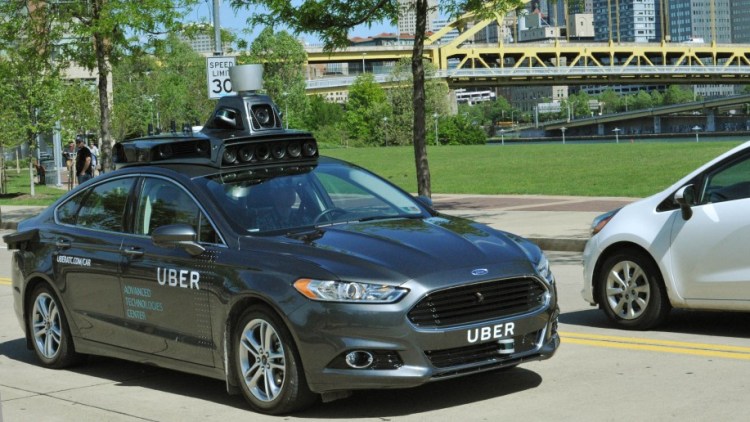Google’s self-driving cars are becoming a familiar sight on U.S. roads, as the Internet giant pushes to reinvent the transportation of the future. But the company will soon have another challenger, in the form of Uber, which has announced it will be bringing its autonomous cars to the roads of Pittsburgh “in the coming weeks.”
The car in question will be a Ford Fusion hybrid and will be fitted with sensors, radars, scanners, and high-res cameras. It will initially set about collating map and location data, in addition to testing the car’s autonomous smarts. As with Google’s incarnations, it will have a human in the driver’s seat as a backup to ensure things don’t go awry.
The news comes a little more than a year after the etaxi company unveiled the Uber Advanced Technologies Center (ATC), a research and development (R&D) facility in Pittsburgh created in conjunction with Carnegie Mellon University. “We have the unique opportunity to invest in leading-edge technologies to enable the safe and efficient movement of people and things at giant scale,” said Uber chief product officer Jeff Holden, at the time. “This collaboration and the creation of the Uber Advanced Technologies Center represent an important investment in building for the long term of Uber.”
Pittsburgh is a natural test bed for Uber’s new venture, given that it’s where the company chose to base its new R&D facility, and the city’s mayor reckons it can help improve road conditions in the region.
“From the first steel mills to the laboratories at Pitt and Carnegie Mellon, Pittsburgh has a long history of innovation,” said Mayor William Peduto. “Now we’re taking another step forward, this time as home to Uber’s Advanced Technologies Center, where some of the world’s leading innovators are helping to shape the future of transportation. We’re excited that Uber has chosen the Steel City as they explore new technologies that can improve people’s lives — through increased road safety, less congestion, and more efficient and smarter cities.”
In a bid to ensure the security of autonomous cars, last August Uber hired renowned “car-hackers” Charlie Miller and Chris Valasek, a duo who had demonstrated that they could hack into a moving Jeep.
We’re likely still some years away from seeing autonomous cars on roads in a non-test environment — there will be a long transition period, and deployment will probably happen gradually on a town-by-town or city-by-city basis. But with Google going full-steam ahead with its robotic car plans, General Motors investing heavily in self-driving car tech, and the involvement of international companies, such as Chinese Internet giant Baidu, which recently announced an autonomous automobile arm in Silicon Valley, the battle really is heating up to get self-driving automobiles on American roads.


